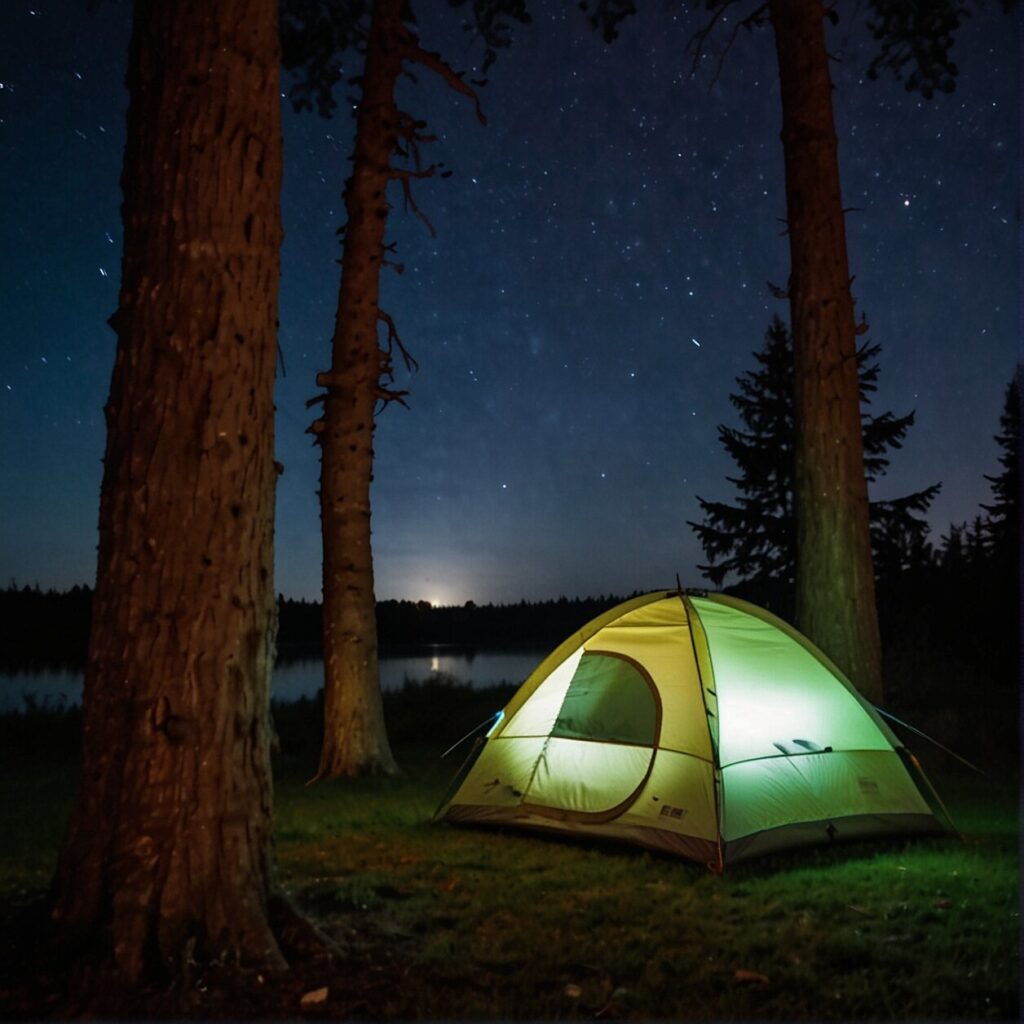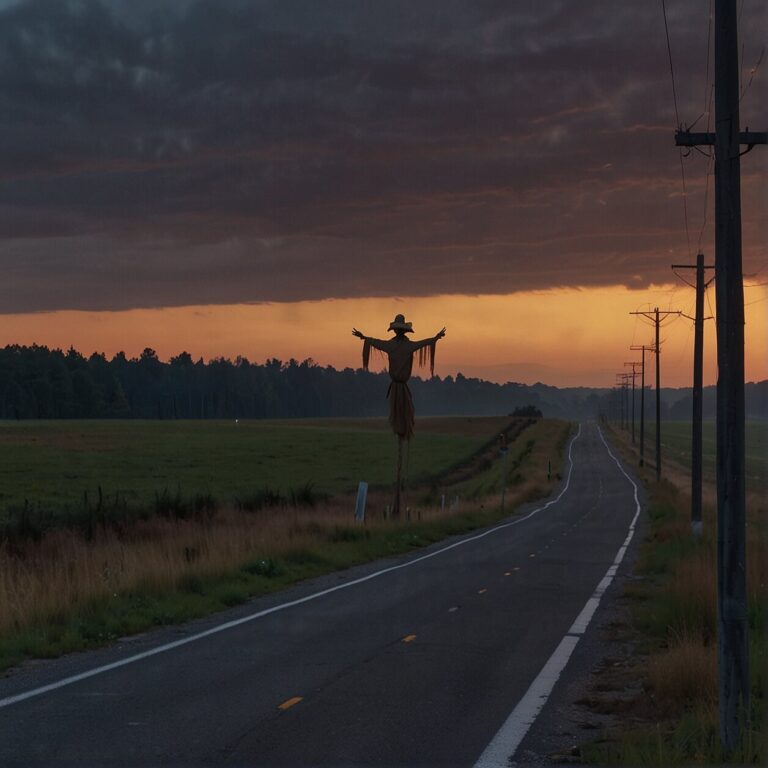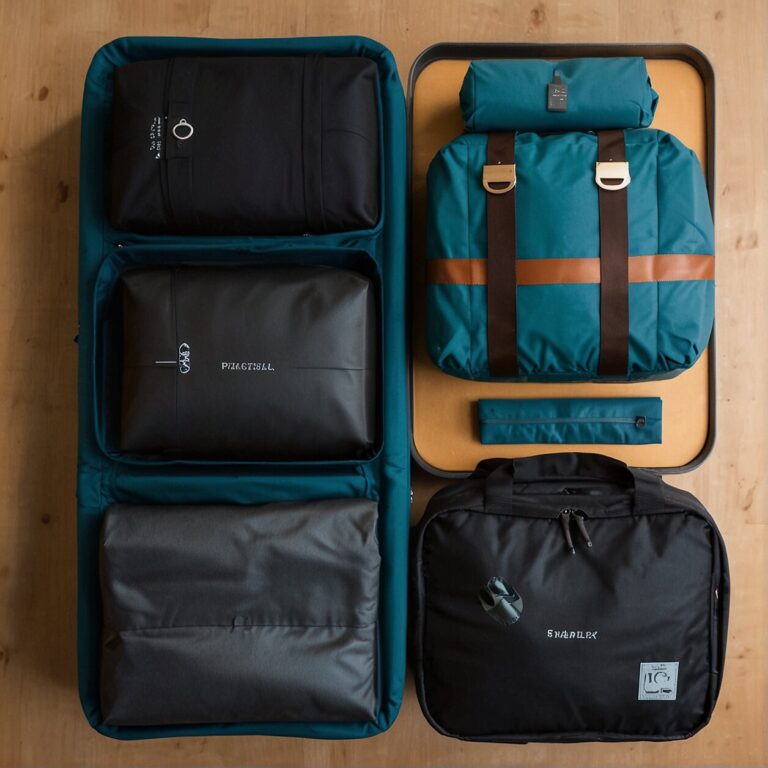Budget Backpacking Techniques for Professionals
Backpacking, an adventure packed with a blend of exploration and minimalism, can be a thrilling—and fiscally insightful—experience. Embarking on a journey with everything you need strapped to your back, exploring unknown terrains, mingling with diverse cultures, and imbibing the tranquility of nature, all without spending a fortune, might sound too good to be true. But with a bit of planning, budget-consciousness, and the hints we’ll unveil in this article, you can make this dream a reality.
We’re going to guide you step-by-step on how to have an unforgettable backpacking trip designed for budget travelers. From gear advice to money-saving strategies, meal planning tips, and means of finding affordable accommodation, this article is your comprehensive guide to low-cost backpacking adventures. Get ready to redefine the way you experience the world.
You don’t need deep pockets to enjoy the richness of backpacking adventures, you just need the right tips and a keen spirit!
- Understand what budget backpacking truly is
- Learn about essential gear that won’t break the bank
- Discover effective strategies to save money on your journey
- Unearth the secrets of budget-friendly meal planning
- Explore the various affordable accommodation options available
Defining Budget Backpacking: What It Really Means
The term ‘budget backpacking’ essentially refers to the art of traveling while keeping costs to a minimum. This might seem daunting at first, especially when you think about all the necessities such as gear, food, accommodation, and transportation. However, it’s absolutely doable, and the experience you will get is worth every cent saved.
Budget backpacking is not just about finding the cheapest options for everything. It’s about efficiently utilizing your resources and making smart money decisions to get the best experiences out of your trip. This could mean sacrificing some comforts or luxuries in exchange for novel, priceless adventures and experiences.
Budget-conscious travelers often prioritize physical fitness, cultural immersion, and sustainability, preferring to embrace local culture and challenge themselves physically rather than rely on cushy but costly transport or accommodations. These kinds of trips rely heavily on careful planning and adaptability to make the most out of limited resources.
That being said, it’s essential to remember that budget backpacking does not equal a lesser experience. The memories and stories you accumulate from your journey have nothing to do with how much you spent but everything to do with your open-mindedness and willingness to explore.
Essential Gear for Budget Backpacking: A Comprehensive Guide
Getting your feet wet in the world of backpacking doesn’t have to break the bank. With a bit of savvy shopping and a focus on the essentials, you can outfit yourself for an adventure without draining your savings. Here are some suggestions on how to get started with a Budget Backpacking Kit.
Build your kit gradually
It’s tempting to go all out and buy everything at once, but building your kit gradually will give you time to shop for the best prices and make sure the gear is right for you. Start with the basics: a backpack, tent, sleeping bag, and sleeping pad. You can get a decent starter kit for around $472 according to research. Once you have your core gear, you can gradually add in other items like clothing, cookware, and navigation tools.
Shop sales and buy used gear
You don’t always have to buy new gear. Used or secondhand items can provide the same functionality at a fraction of the cost. Check out online marketplaces or local outdoor retailers for used gear sales. You might find that not only are these items more affordable, they are also more robust since they’ve already been ‘road-tested’.
Consider renting or borrowing
If you don’t envision yourself backpacking often, or you want to test a piece of equipment before purchasing, consider renting or borrowing. Many outdoor shops offer rental programs, and you might have friends or family who are willing to lend you their gear. This way, you can try before you buy and make a more informed decision when it comes to purchasing.
Invest in that one item you love
Finally, don’t forget to splurge on that one item you really love and will use a lot. Maybe it’s a super-comfortable sleeping bag, or perhaps it’s a lightweight cook system. Investing in one piece of high-quality gear can enhance your backpacking experience, giving you more joy in your adventure.
To summarize, smart shopping and gradually building your gear collection are the keys to budget backpacking. Just remember to stay patient – the right deals and gear will come along.

Money-Saving Strategies for Planning Your Backpacking Adventure
Planning a backpacking adventure can be just as exciting as the trip itself. But, it can also be quite expensive if you’re not careful. Here are some tried and true strategies to keep your adventure on budget, without compromising your experience.
Plan ahead and book in advance
When it comes to saving money, nothing beats good old-fashioned planning. Research your destination well in advance, lock in the best deals on transport and accommodations, and avoid the price inflation that comes with last-minute bookings. Online platforms and apps offer substantial early bird discounts, and sometimes even provide extra amenities at no additional cost. Remember, early planning can pave the way for a comfortable and affordable backpacking adventure.
Travel off-peak
Avoiding popular travel seasons can be a savvy method to cut back on expenses. Airfare, lodging, and admission prices for local attractions often drop during off-peak seasons. Plus, you’ll get to enjoy your destinations without large crowds, which can make your experience more relaxed and enjoyable.
Utilize public transport and ride-shares
Instead of resorting to taxis or hired vehicles, explore the public transport options available at your destination. Buses, trams, metros are often a fraction of the cost and can offer a more authentic local experience. Also, consider using shared rides or bike-sharing platforms if available. These options can save money and help you meet locals and other travelers.
Travel with a friend or small group
Sharing the journey with a friend, or traveling as a small group, can significantly reduce costs. You can share accommodation and food expenses, and potentially qualify for group discounts at attractions. Moreover, traveling with friends can make your adventure more memorable and secure.
Remember, it’s okay to haggle
In many parts of the world, bargaining is entirely acceptable and often expected. Haggling over prices at markets or with street vendors can go a long way in managing your budget. However, it’s important to negotiate respectfully and responsibly; after all, this is a part of their livelihood.
In conclusion, an unforgettable backpacking adventure doesn’t have to break the bank. By taking time to plan, choosing your travel season wisely, making use of affordable transport solutions, teaming up with a friend, and embracing a little bit of haggling, you can stretch your dollars without compromising the overall experience.
Budget-Friendly Meal Planning for The Road
Putting some forethought into meal planning for your backpacking adventure can pay off significantly in terms of maintaining both your budget and your energy levels. Instead of allocating a substantial chunk of your finances to dining out, focus on providing yourself with nutritious, easy-to-prepare, and price-friendly meals you can enjoy along the way.
Pre-pack Snacks and Meal Ingredients
Every backpacker knows that snacks are essential for staving off hunger on a long trek. Instead of buying pre-packaged trail mix or protein bars, consider making your own. Buy your ingredients in bulk and mix them yourself. This not only helps control your costs, but you’ll also know exactly what you’re eating. You can do the same with ingredients for other meals like morning oatmeal packets, dehydrated fruits, and vegetables, even instant rice or pasta meals.
Budget Grocery Shopping
When you’re in a new town or city, it’s very easy to be tempted to try all the local cuisine. While indulging occasionally can be part of the fun, frequent dining out can blow your budget. Instead, get a feel for the local supermarkets and farmers’ markets, where you can buy fresh ingredients at a fraction of restaurant prices. Consider purchasing foods that are filling and easy to cook, like rice, beans, and lentils.
Cook in Bulk
Cooking in bulk can be an excellent way to save both money and time. Prepare large batches of food that can easily be reheated, or even enjoyed cold. To ensure you have enough variety, consider cooking a different meal each time, then keep alternating what you eat. Invest in some good quality, lightweight Tupperware to store these meals.
Making Use of What’s Available
Dishes like foraged greens, edible flowers, or mushrooms (only if you’re confident about what is safe to eat, of course), or fishing in permitted areas can supplement your meals, bringing down your overall food costs while also immersing you more deeply into the natural world around you.
Remember, you don’t need gourmet meals to enjoy your backpacking adventure. With smart planning and a touch of creativity, you can enjoy delicious, nutritious, and budget-friendly food on the road.

Finding Affordable Accommodations: Hostels, Camping, and More
When it comes to accommodations, you have plenty of budget-friendly options that don’t compromise on the adventure. Let’s explore some.
Explore Hostel Options
Hostels are an inexpensive alternative to hotels and are common in many backpacking destinations. They often offer dormitory-style rooms which are perfect if you’re traveling alone, as they provide opportunities to meet like-minded travelers. Additionally, many hostels offer private rooms, should you wish for a more secluded space. Keep an eye out for hostels featuring communal kitchens, as they can assist in keeping your meal costs down.
Camp Under the Stars
Camping is another highly affordable option that truly immerses you in nature. Not only will you save on expenditures but waking up amidst stunning landscape views is something money can’t buy. Remember to abide by the ‘Leave No Trace’ policy, maintaining the beauty of the environment for future visitors.
Consider Other Alternative Accommodations
Today, you have more options than ever before. Platforms like Airbnb offer unique stays at diverse price points. Additionally, consider platforms like Couchsurfing where locals offer their spare spaces to travelers for free. This is not just a cost-saving method, but a unique opportunity to meet locals and experience your destination from an insider’s perspective.
Swap Skills for Stays
If you have any special skills to offer, volunteering through platforms like Worldpackers can be a great way to secure affordable accommodation. Whether you’re handy at fixing things, highly organised, or have experience in digital marketing, your skills can be exchanged for a place to stay. This can reduce or even eliminate the cost of certain leg of your trip, and it’s also a fantastic opportunity to immerse yourself in the local culture and community.
Accommodation can be a significant part of your budget but with these strategies, you can save considerable costs while still enjoying every moment of your backpacking adventure.
FAQ’S
As we delve deeper into the nitty-gritty of budget backpacking, we understand that you may have a plethora of questions itching for answers. You are not alone! A multitude of adventurers, just like you, share similar queries and concerns. Hence, we’ve gleaned the most frequently asked questions from our backpacking community and compiled them into this accessible FAQ section. Whether you’re wondering about affordable backpacking destinations, preparing for unexpected expenses, or maintaining a professional lifestyle whilst on the road, we’ve got you covered. Read on to uncover detailed responses to these pressing questions and more. Rest assured, the answers you seek are just a scroll away.
Which destinations are most affordable for backpacking?
You might be surprised to know that some of the most amazing backpacking destinations around the world are also the most affordable. Countries in Southeast Asia, like Vietnam, Thailand, and Cambodia, are popular for their low living costs. In these places, you can find tasty street food, cheap accommodations, and free or low-cost sights to explore.
Eastern Europe also offers some budget-friendly destinations, such as Poland, Romania, and Bulgaria. These countries have rich histories, delicious local cuisines, and beautiful natural landscapes that you can explore without putting a dent in your wallet.
Central America, particularly Nicaragua and Guatemala, is another affordable region teeming with lush rainforests, beautiful beaches, and vibrant local cultures. Stay in hostels, use local transportation, savor local dishes, and participate in community-led tours to save on costs.
Last but not least, consider Africa’s backpacking scene, including places like Morocco, Kenya, and South Africa. Here, you can marvel at the stunning wildlife while sticking to your budget.
Remember, regardless of where you go, costs can be drastically reduced by traveling during the off-peak season, staying in cheaper accommodations, and eating local food rather than dining at expensive restaurants.
Can I still have a quality backpacking experience on a budget?
Absolutely! With careful planning and considered choices, you can ensure a memorable backpacking experience that doesn’t drain your finances. Opting for budget-friendly gear, choosing countries where daily expenses are minimal, adhering to an effective cost-cutting meal strategy, and making smart accommodation choices are all crucial ingredients for a budget-friendly adventure.
Remember that the true value of a backpacking trip doesn’t come from extravagant meals, luxurious hotels, or top-dollar gear. It’s really about the connection with nature, the thrill of the journey, the unique cultural interactions and the personal growth that comes from stepping outside of your comfort zone.
There’s also a joy in the challenge of exploring the world on a shoestring. Every penny saved is an opportunity to extend your journey, experience something new, or add another destination to your itinerary. So yes, you can still have a quality backpacking experience on a budget. In fact, you may just find it’s even more rewarding.

How can I budget for unexpected expenses during my backpacking trip?
Plan as meticulously as you can, but don’t fool yourself – unexpected expenses are a part of every backpacking adventure. From minor medical emergencies to unplanned transportation costs, these surprises can be daunting. But fear not, there are measures you can take to ensure such incidents don’t result in financial calamity.
First, start by saving some money solely for unexpected events. Financial experts suggest that this ’emergency fund’ should be about 10-20% of your total trip budget. Consider it as a buffer against unpredictable circumstances. Think of it this way: it’s better to have it and not need it, than need it and not have it.
Secondly, always have a clear understanding of your travel insurance cover. Scrutinize the terms and conditions, ensuring they sufficiently cover eventualities such as medical emergencies, cancellation or loss of personal belongings.
Finally, be ready to adjust your plans, if necessary. If an unforeseen expense means you have to forgo that expensive activity you’ve planned or skip the costly city tour, so be it. Remember, backpacking is about adventure and experience, not unchecked spending.
It’s not the unexpected expenses that break the bank, but rather how you prepare and respond to them. Stick to financial prudence and your backpacking adventure won’t cause you undue financial stress.
Are there any budget backpacking groups or communities I can join?
Absolutely! Joining budget backpacking communities can not only encourage budget-friendly travels but also fosters great friendships and experiences. The internet is sprawling with numerous backpacking forums, online groups, and social media platforms catering to backpackers on a budget. Sites like Couchsurfing, Meetup, and Backpackers On A Budget on Facebook are great places to start.
Couchsurfing, beyond enabling travelers to find free accommodations of locals’ couches across the globe, is also a vibrant community where backpackers share experiences, tips, and organize meetups. On Meetup, you can find groups specific to backpacking and travel, where members share resources and plan trips together. Backpackers On A Budget is a Facebook group with tens of thousands of members who regularly share tips, deals, and advice.
Joining these communities not only helps you in journey planning but also exposes you to travel tales and practical advice from fellow backpackers who have been in your shoes. Additionally, some backpacking groups organize affordable group trips where you can tag along, thus saving a lot while gaining companionship and a new pool of experiences.
Remember, the backpackers’ community is generally a tight-knit one. There’s substantial sharing of knowledge, tips, and even gear, which can prove to be highly beneficial for first-timers and seasoned backpackers alike. So, don’t hesitate to reach out and get involved, because this could be your key to unlocking an unforgettable backpacking adventure without blowing your budget!
How can I maintain a professional lifestyle while backpacking on a budget?
Maintaining a professional lifestyle during your budget backpacking adventure is all about creating the right balance between work and travel. The good news? With the rise of remote work possibilities, it’s become easier than ever to stay connected to your professional life while exploring the world. Here are a few tips that will help you do this:
Digital Nomad Lifestyle: Consider embracing the digital nomad lifestyle. As a digital nomad, you can work remotely while traveling, allowing you to maintain your professional life. Invest in a lightweight laptop, a reliable international data plan, and use co-working spaces or cafes when possible. Take advantage of time zone differences to connect with clients or colleagues while traveling.
Portable Equipment: When backpacking, keep your professional needs in mind when packing. Items like your laptop, reliable Wi-Fi devices or power banks are crucial. Making room for these items won’t violate too much your lightweight backpacking principles; there are several compact and lightweight options available in the market. Just remember that caring for your equipment is as essential as bringing it along.
Establish a Routine: Though it sounds contradictory, creating a daily or weekly routine can prevent burnout and help you dedicate time to both your work and adventures. This routine does not have to be rigid; flexibility is key when balancing work and travel.
Networking: Traveling offers an excellent opportunity to expand your professional network. Always be open to making connections with locals or fellow travelers. Backpacker hostels often host networking events or workshops, which are perfect opportunities to meet and connect with other professionals.
Budget backpacking and maintaining a professional lifestyle may seem like opposite extremes, but they can coexist. The key is to plan well, make smart choices, and nurture a balance between work and play. Remember, you’re traveling to explore and experience new things, so don’t let work completely overshadow your adventure.






